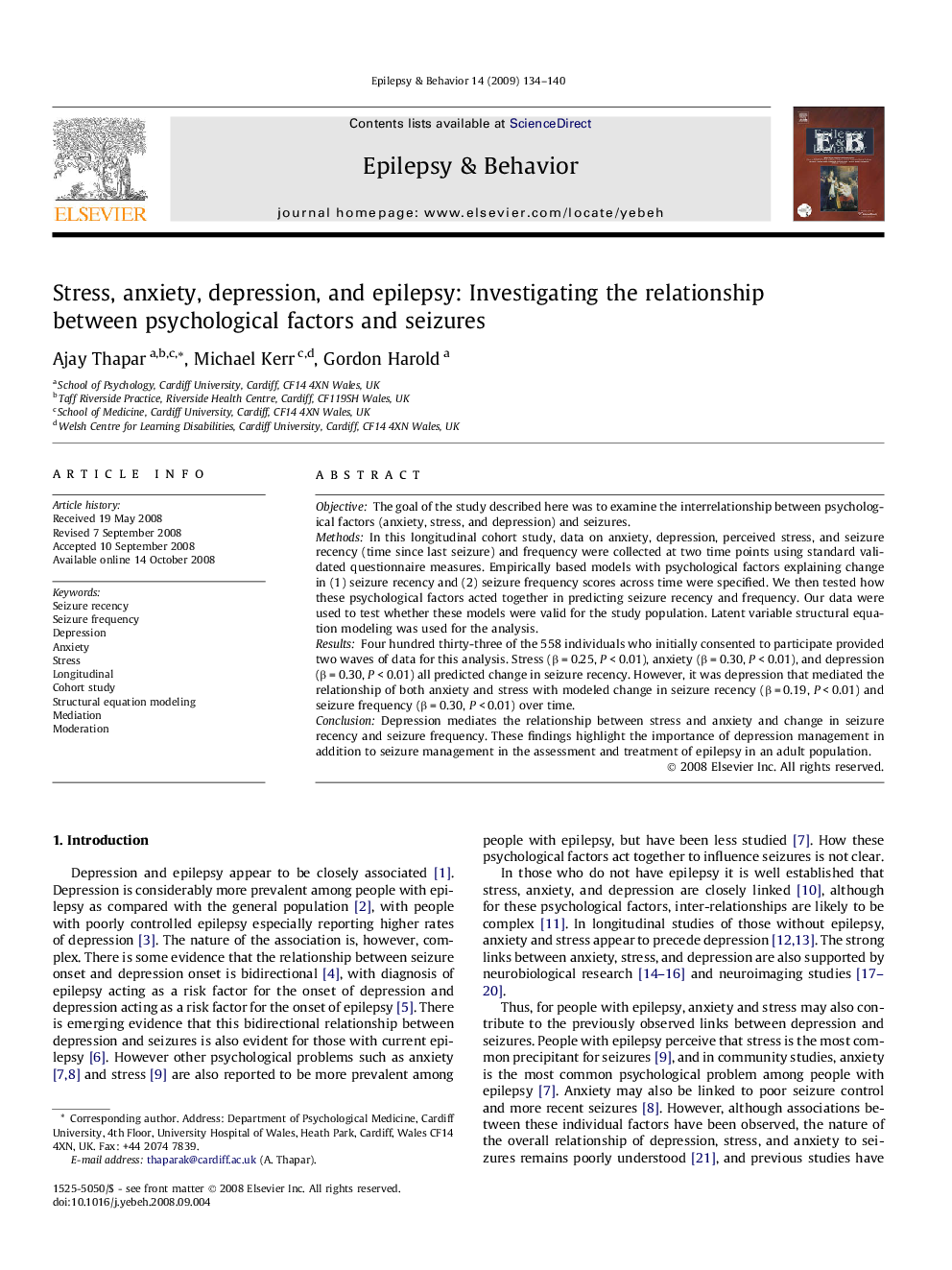| Article ID | Journal | Published Year | Pages | File Type |
|---|---|---|---|---|
| 3051037 | Epilepsy & Behavior | 2009 | 7 Pages |
ObjectiveThe goal of the study described here was to examine the interrelationship between psychological factors (anxiety, stress, and depression) and seizures.MethodsIn this longitudinal cohort study, data on anxiety, depression, perceived stress, and seizure recency (time since last seizure) and frequency were collected at two time points using standard validated questionnaire measures. Empirically based models with psychological factors explaining change in (1) seizure recency and (2) seizure frequency scores across time were specified. We then tested how these psychological factors acted together in predicting seizure recency and frequency. Our data were used to test whether these models were valid for the study population. Latent variable structural equation modeling was used for the analysis.ResultsFour hundred thirty-three of the 558 individuals who initially consented to participate provided two waves of data for this analysis. Stress (β = 0.25, P < 0.01), anxiety (β = 0.30, P < 0.01), and depression (β = 0.30, P < 0.01) all predicted change in seizure recency. However, it was depression that mediated the relationship of both anxiety and stress with modeled change in seizure recency (β = 0.19, P < 0.01) and seizure frequency (β = 0.30, P < 0.01) over time.ConclusionDepression mediates the relationship between stress and anxiety and change in seizure recency and seizure frequency. These findings highlight the importance of depression management in addition to seizure management in the assessment and treatment of epilepsy in an adult population.
